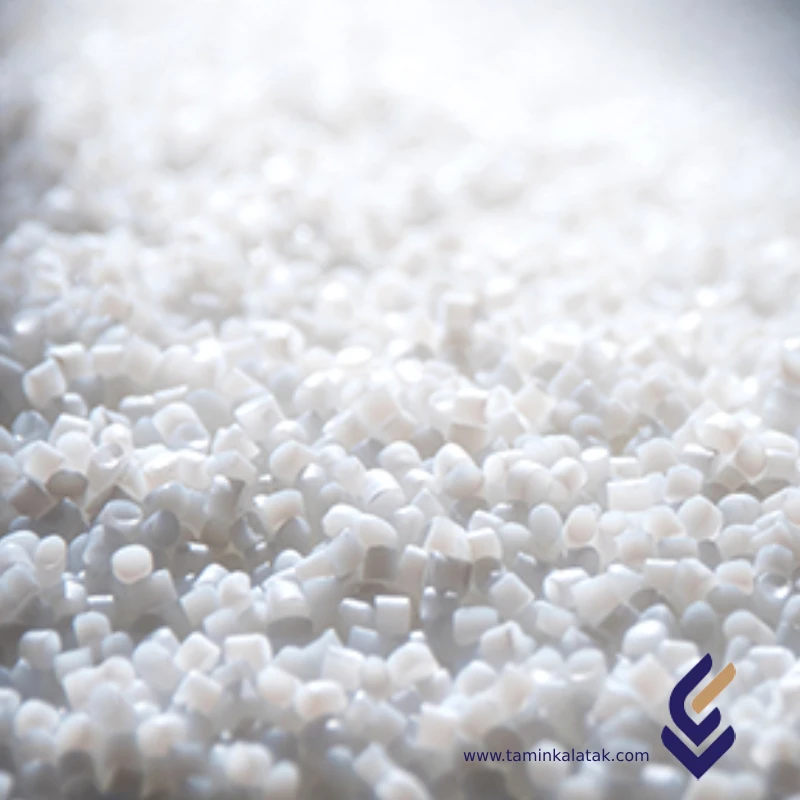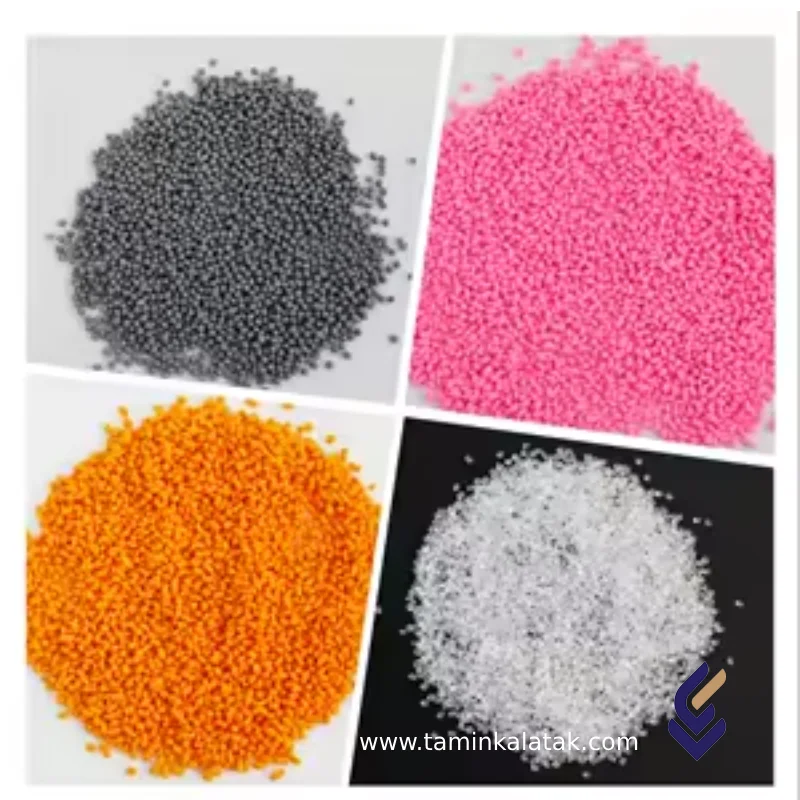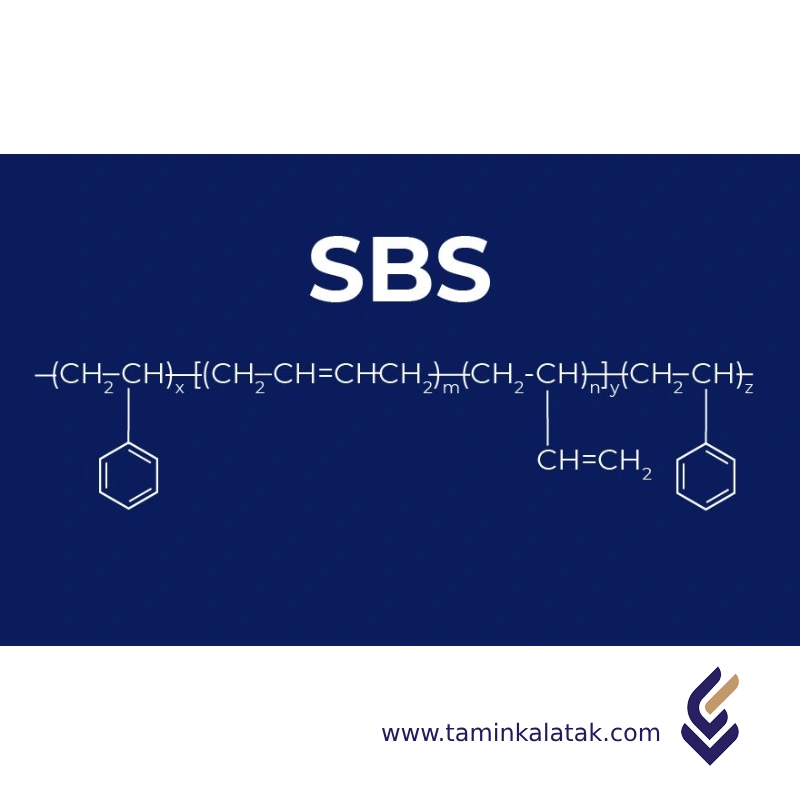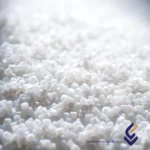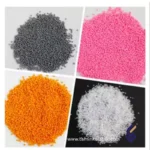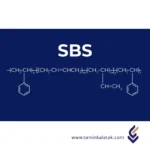Polymers are made up of very large molecules made up of many repeating units called monomers, which ultimately form this long polymer chain
A thermoplastic is a type of plastic polymer that becomes moldable or flexible at a certain temperature and solidifies upon cooling. This property allows it to be repeatedly softened by heating and hardened by cooling without significant chemical change.
Styrenic Block Copolymers (TPS)
Styrenic Block Copolymers (TPS) are a class of thermoplastic elastomers (TPEs) composed of alternating hard and soft polymer segments. The hard segments are made of polystyrene (PS), while the soft segments consist of rubber-like elastomers such as polybutadiene (PB) or polyisoprene (PI). This structure gives TPS materials the elasticity of rubber while maintaining the easy processability of thermoplastics.
Structure
Styrenic block copolymers (TPS) have a phase-separated structure composed of alternating hard and soft polymer segments. The hard segments consist of polystyrene (PS) domains, which provide strength, rigidity, and thermal stability, while the soft segments are made of elastomeric materials such as polybutadiene (PB), polyisoprene (PI), or ethylene-butylene (EB), contributing to flexibility and elasticity. These block copolymers form a physical crosslinking network where the polystyrene blocks aggregate into discrete domains, acting as physical anchors that hold the material together, while the rubbery segments remain continuous and provide elasticity. This unique morphology allows TPS materials to behave like thermoset elastomers at room temperature but soften and flow when heated, making them fully thermoplastic and easily reprocessable. The phase separation between the polystyrene and elastomeric segments gives TPS its characteristic combination of strength, flexibility, and processability, making it widely used in applications requiring both durability and soft-touch properties.
Properties
Styrenic block copolymers (TPS) exhibit a unique combination of elasticity, strength, and processability due to their phase-separated structure. They have excellent flexibility and rubber-like elasticity, allowing them to stretch and recover their shape without permanent deformation. Their mechanical properties include good tensile strength and impact resistance, making them durable for various applications. TPS materials have moderate heat resistance, generally performing well below 100°C, and are resistant to many oils, greases, and chemicals, enhancing their stability in demanding environments. They also have good adhesion properties, making them suitable for overmolding onto other plastics. Unlike thermoset rubbers, TPS materials are thermoplastic, meaning they can be melted, reshaped, and recycled multiple times, improving manufacturing efficiency and sustainability. They also provide a soft-touch feel, making them ideal for grips, handles, and other ergonomic applications. Additionally, TPS offers good weather resistance, especially in formulations like SEBS, which enhance UV and oxidation stability. These combined properties make TPS widely used in automotive, medical, consumer goods, and adhesive applications.
Application
- Automotive Industry:
- Soft-touch interior components (dashboards, door panels)
- Seals, gaskets, and vibration dampeners
- Grip pads and protective coatings
- Consumer Goods:
- Handles and grips for tools, toothbrushes, and razors
- Sports equipment, shoe soles, and protective gear
- Flexible packaging and stretchable films
- Medical Applications:
- Medical tubing and syringe plungers
- Overmolded soft-touch medical devices
- Flexible, biocompatible components
- Adhesives and Sealants:
- Pressure-sensitive adhesives (PSAs)
- Hot-melt adhesives for packaging and footwear
- Electronics & Electrical:
- Protective casings for devices
- Wire and cable insulation
Advantages
High Elasticity and Flexibility – Provides rubber-like stretch and softness
Good Impact and Tensile Strength – Enhances durability and wear resistance
Thermoplastic Nature – Can be easily melted, reshaped, and recycled
Soft-Touch Feel – Ideal for ergonomic grips and overmolding
Good Adhesion to Various Materials – Suitable for multi-material applications
Resistant to Oils, Greases, and Chemicals – Performs well in harsh environments
Lightweight – Reduces material costs and improves energy efficiency
Good Weather and UV Resistance – Certain formulations (e.g., SEBS) have enhanced outdoor durability
Easy Processing – Compatible with injection molding, extrusion, and blow molding
Disadvantages
Lower Heat Resistance – Limited performance above 100°C
Lower Stiffness Compared to Some Plastics – May require reinforcement for structural applications
Can Become Sticky in Hot Conditions – Some grades may soften and lose shape retention
Higher Cost Than Standard Plastics – More expensive than traditional polyolefins like PP and PE
Limited Load-Bearing Capacity – Not suitable for heavy-duty mechanical applications
Applications
| Applications | , , , , , , |
|---|
Styrenic Block Copolymers (TPS)
| Products | Grade | Mfi (g/10 min) | Density (g/mm3) | Process Metod | Applications | Brochure | MSDS |
|---|---|---|---|---|---|---|---|
| TPS | 0.5 to 50 | 0.89 to 1.10 | Injection Molding Extrusion Blow Molding Thermoforming Compression Molding | Automotive interior components Handles and tools Medical tubing and devices Shoe soles Adhesives and sealants Consumer electronics enclosures Wire and cable insulation Flexible packaging and films Vibration dampeners and gaskets |

